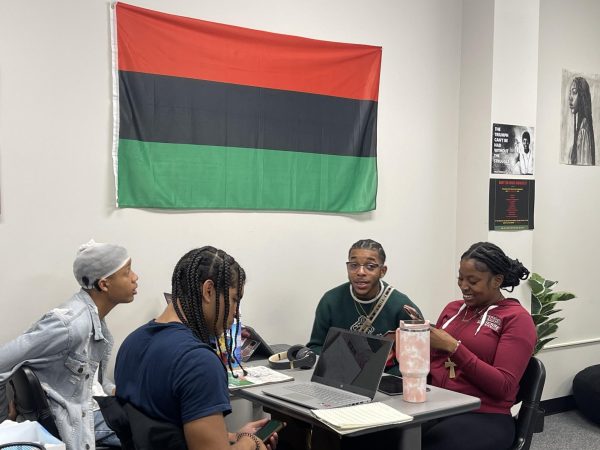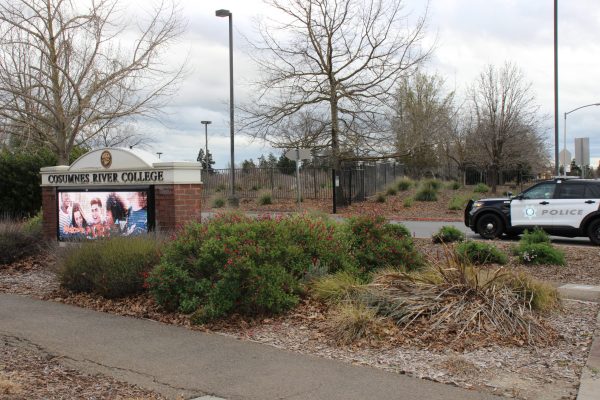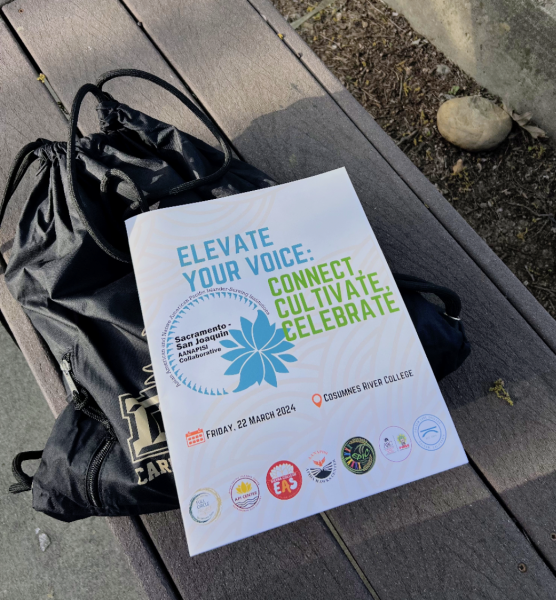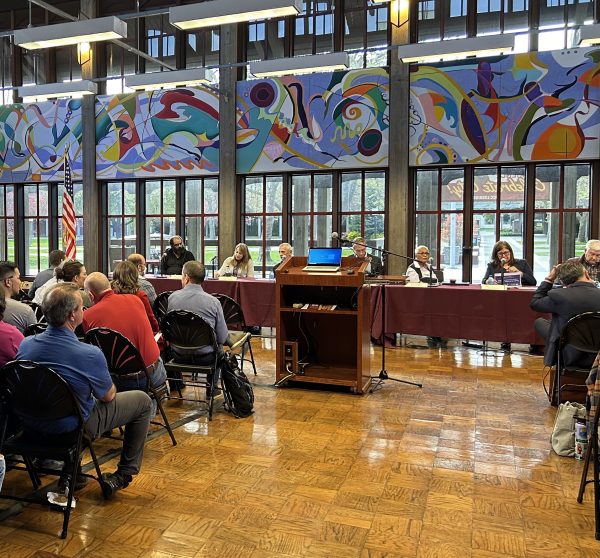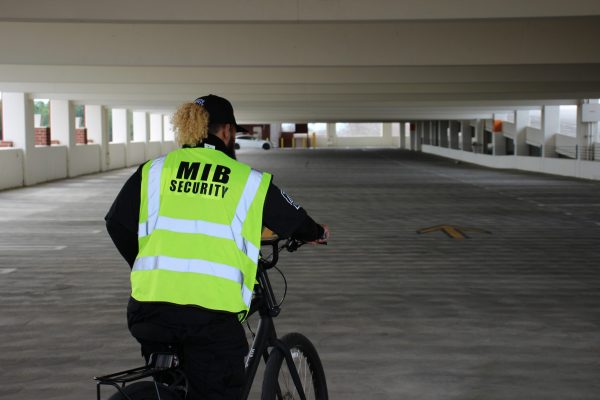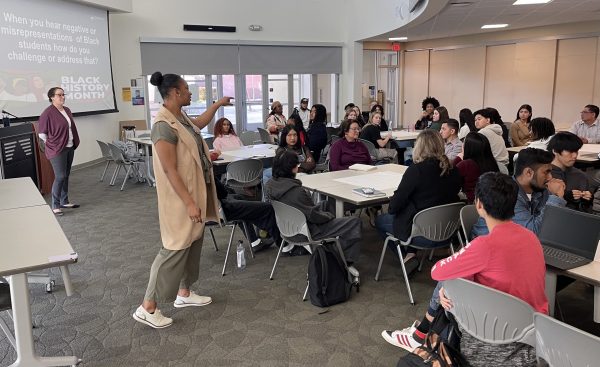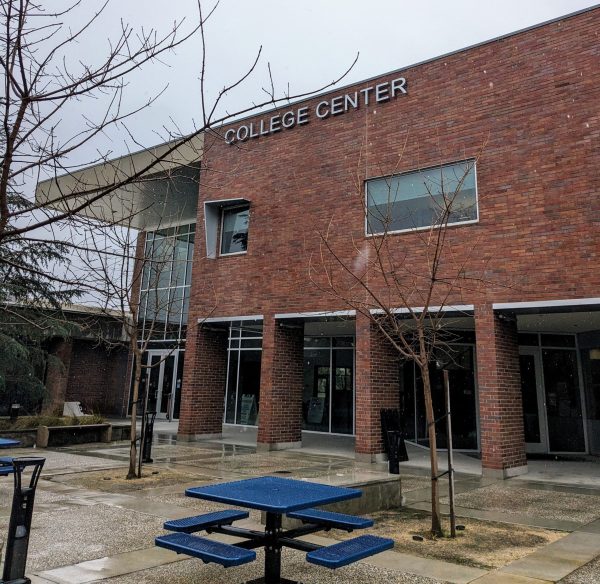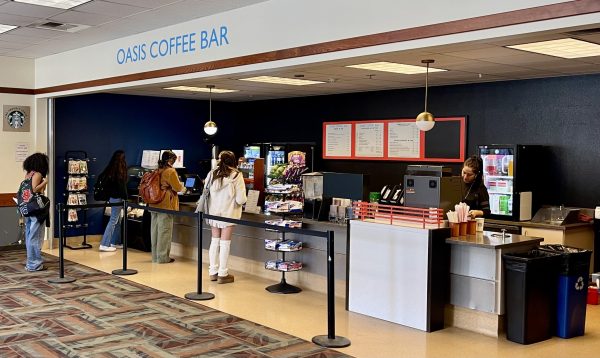New campus partnership puts spotlight on sexual violence
One in five college women and one in 16 college men are survivors of sexual assault in the United States, according to the U.S. Department of Justice’s Campus Sexual Assault Study.
In 1993, these numbers were 49 percent higher, according to the DOJ’s National Crime Victimization Survey. Through years of campaigning, various organizations working against sexual violence have brought awareness to the issue and helped curb the statistics.
Now, one local organization is working to bring more awareness to Cosumnes River College.
Women Escaping a Violent Environment, a Sacramento-based nonprofit dedicated to helping victims of domestic violence, sexual assault and human trafficking, has paired with CRC in an attempt to educate more college-age students about domestic violence and sexual assault.
“We’re actually partnering with CRC. The grant we’re working under is really to address violence on campus,” said Rebecca Kneppel, campus violence and prevention coordinator at WEAVE. “What we’re doing is a lot of classroom presentations, and we’re trying to do them in series. If you do one presentation one time, you don’t really impact people. It’s really when you have a conversation for an extended amount of time.”
Michelle Barkley, CRC’s head nurse, said that WEAVE had already been active in the area, but a new grant they received aimed to expand the organization’s reach.
“[In the past] WEAVE has come onto the campus, done presentations, they go to health education classes … different campus programs ask them to come out,” Barkley said. “They wanted to target a middle school, a high school and a college with more than 75 percent [of students] from socioeconomically disadvantaged families.”
Under the grant, WEAVE is also presenting at Will C. Wood Middle School and Hiram Johnson High School, Barkley said.
According to the annual Clery report, CRC had four incidents of forcible sex offenses, five incidents of domestic violence and no incidents of dating violence between 2011 and 2013.
However, 2013 marked the first year domestic violence and dating violence statistics were recorded in the Clery report after amendments made to the Violence Against Women Act requested colleges make honest estimations of such crimes in 2013, said Los Rios Police Capt. Chris Day in an email.
Kneppel said the estimations likely aren’t the true numbers.
“Sometimes colleges have different definitions of sexual assault and domestic violence, and unless it’s super extreme, they might not count them,” Kneppel said.
Kneppel said that schools sometimes report lower numbers of sexual assault to make their campus appear safer, but this practice can result in students attending a college they think is safer because of underreporting.
“Colleges are really under pressure right now to report accurate numbers because it can affect financial aid,” Kneppel said.
“If you’re not reporting accurate numbers, federal financial aid will be pulled from your school. So they’re like saying straight up, ‘you need to not be deceptive in this process,’” she said.
On CRC’s campus, there are currently no programs specifically dedicated to helping victims of sexual assault and domestic violence.
Students can go to the police department or health services to report incidents and get help, but the college has yet to create a support group-like program for victims.
“In the past there’s been some talk of it,” Barkley said.
“For a while I think it was because we didn’t have space, but we’re getting more space. But now it’s just the interest and the energy someone has to get [a program] going. Because if there is interest and someone is able to do it, getting the right person there and getting something going, it very well could happen,” she said.
Andrew Schiele, a 19-year-old biology major, who helped out during WEAVE’s denim day event on April 29, said that WEAVE’s presence on campus provides victims with a valuable new resource in getting help.
“I feel like WEAVE is a really good organization, and they would take care of the majority of anything that happens,” Schiele said.
Students should note that Kneppel and campus nurses are mandated reporters, meaning they must relay any incidents reported to them to the police.
“Anything that anyone says to [Kneppel] she does have to report,” Barkley said.
“As a college nurse, I’m a mandated reporter … if they report anything to me, I generally contact the campus police,” she said.
Schiele said that the first step to curbing sexual assault in society is to get more people talking about it.
“There has to be a complete movement for everyone to actually participate,” Schiele said.
“If only a few people are doing it, there will always be people that ignore it and go against it, which will cause more problems,” he said.
While there were multiple events on campus this semester, Kneppel said WEAVE’s efforts will begin to pick up more next semester.
“I feel like it’s going to pick up a lot in the fall,” Kneppel said. “We’re learning what the students need here, because of course I’m not going to come here and talk about stuff people don’t want to know about. I want to see what people are interested in.”

